7. Theo Angelopoulos
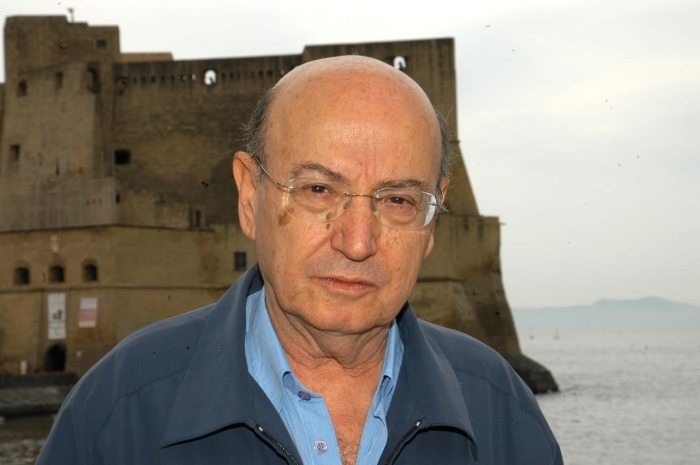
Reconstitution, The Travelling Players, The Hunters, Alexander the Great, Voyage to Cythera, The Beekeeper, Landscape in the Mist, The Suspended Step of the Stork, Ulysses’s Gaze, Eternity and a Day
Vastly underrated and gradually falling off the radar as one of the greatest filmmakers of all time, Angelopoulos’s overwhelming, courageous and often tumultuous imagination has gifted cinema with masterpieces that have endured the test of time and still stand out as skillfully sculpted works of art, where every detail has been painstakingly put together and contains unimpeachable truths.
Whether it be his Palme d’Or winning reflection on the fleeting nature of life very aptly titled “Eternity and a Day” or his mammoth realization of life in all its glory and darkness “The Travelling Players”, an unwavering, patiently pristine focus that compels the audience to be utterly blown away is always present in his films, and all of it can be traced back to his fearless screenplays.
6. Billy Wilder
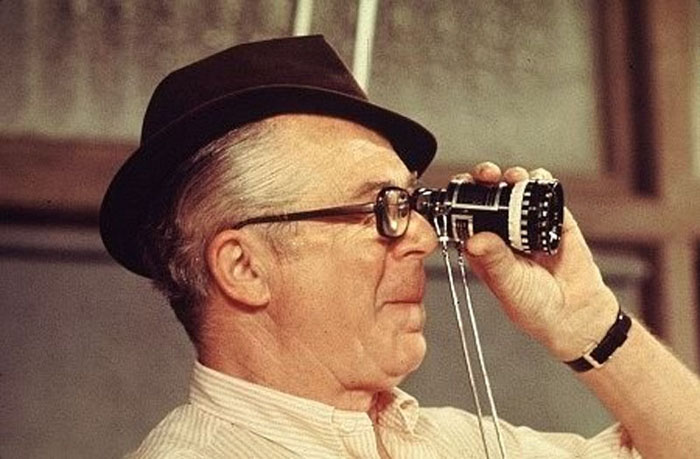
Ninotchka, Double Indemnity, The Lost Weekend, Sunset Boulevard, Ace in the Hole, Stalag 17, Some Like it Hot, The Apartment
Few writers in film history can claim to be as versatile as Billy Wilder. Winner of 3 Oscars for writing, Wilder’s dexterous balancing of drama and comedy has never lost its replay value. While many of his films were misfires, the highs are so endearing it would be unjust to write him off as a mere vestige of Hollywood history.
Filmmakers like David Lynch have cited him as an inspiration because of his ingenious use of dark comedy to tackle horribly serious issues perfectly illustrated in “Sunset Boulevard”, said to be Lynch’s favorite film of all time, while his sublimely witty “Some Like it Hot” and the pleasurable “The Apartment” remain Hollywood classics.
Needless to say, were it not for Wilder and his exceptional abilities as a storyteller, screenwriting would not be paid the attention it deserves. His full-bodied scripts cultivate edgy yet relatable characters that move in a confidently formulated world, rendering his films astutely unforgettable.
5. Michael Haneke
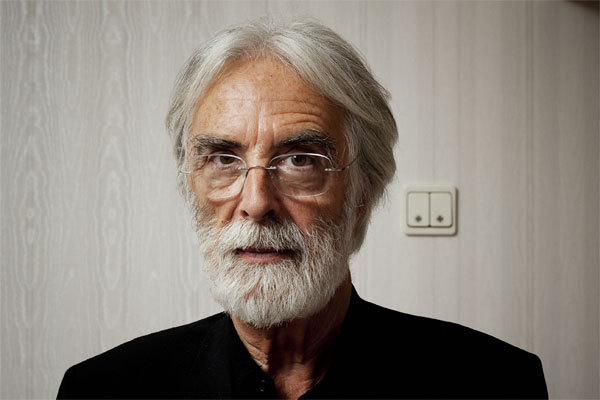
The Seventh Continent, Benny’s Video, Funny Games, Code Unknown, The Piano Teacher, Caché, The White Ribbon, Amour
Possibly the greatest filmmaker working today, the name Michael Haneke immediately brings the darkest of images to mind. From blood sprayed on a wall in “Caché”, the spine-chilling abuse of a teacher in a nightdress by one of her students with whom she has a troubled sexual relationship in “The Piano Teacher”, right down to a group of schoolchildren in “The White Ribbon”, his films all seem to be connected by a harsh, dead-serious perception of humanity and its connection with time.
His fills his stories with characters that on the surface seem to exist only to serve the plot and his thematic ambitions as a storyteller, but are textured, gritty allegories that add layers to the narrative that are elemental to our understanding of Haneke’s thoughts.
Think of the nearly silent, devastating Anne Laurent portrayed by the brilliant Emmanuel Riva in “Amour”. She never assumes importance outside of the premise of the film, but her humanity feels like Haneke is taking us into completely unchartered territories, when all he’s doing is presenting a hardened, uncontestable truth.
4. Tonino Guerra
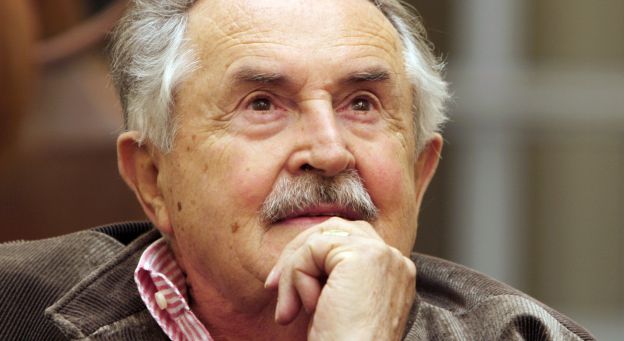
L’Avventura, La Notte, L’Eclisse, The Red Desert, Blowup, Zabriskie Point, The Mattei Affair, Amarcord, Illustrious Corpses, Nostalghia, Voyage to Cythera, The Beekeeper, Landscape in the Mist, The Suspended Step of the Stork, Eternity and a Day, Ulysses’s Gaze
Granted this Italian poet has warranted a spot on his list mainly because of the filmmakers he has collaborated with, the collaborations speak for themselves. There must be something so copiously alluring about Guerra that made the likes of Antonioni, Fellini, Tarkovsky, Rosi and Angelopoulos desire to work with him on multiple projects.
Guerra most frequently collaborated with Antonioni, with whom he wrote the most successful films of the latter’s career. His only film with Fellini enjoys the status of one of the greatest comedies of all time, and “Nostalghia” is the Tarkovsky film that still remains unforgivingly intriguing and much of the fascination lies in the construction of it. All of this, without a doubt, adds up to a towering career with no likely parallels in cinema history.
3. Andrei Tarkovsky
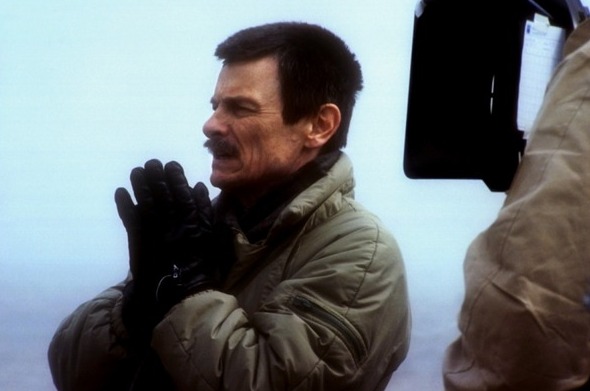
Andrei Rublev, Solaris, The Mirror, Stalker, Nostalghia, The Sacrifice
If there ever were a filmmaker who broke as many rules with as few films as Andrei Tarkovsky, he hasn’t been discovered yet. With his films spawning decades and generations, in which memory is as distorted as premonitions, and narrative as absent as a fixed, unambiguous meaning of each frame, his films surpass the levels of most obscure of artistry to something entirely else: a recognizable, uncontrollable dream.
All of his films evade any classification. They cannot be labeled one thing or the other, because they are so many things all at once and perhaps nothing at all. His voice-overs in “The Mirror” are the only thing close to a cinematic scripture.
The sprawling grandeur of “Andrei Rublev” is arguably the defining historical epic of all time, while “Stalker” and “Nostalghia” never stopped being shamelessly esoteric. Epics by all known standards, even a meager amount of films to Tarkovsky’s credit make him deserve a spot this high on this list.
(Please note that Tarkovsky did not receive a writing credit for “Stalker”.)
2. Stanley Kubrick
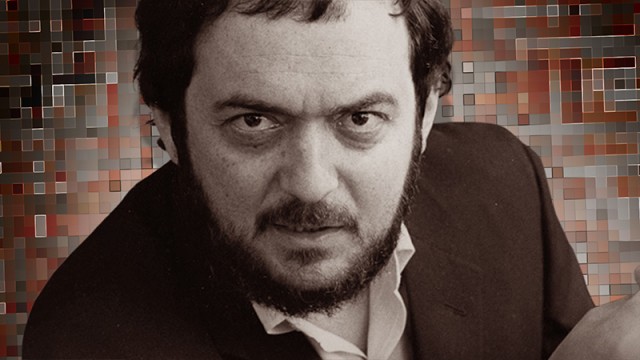
The Killing, Paths of Glory, Dr. Strangelove (Or How I Learned to Stop Worrying and Love the Bomb), 2001: A Space Odyssey, A Clockwork Orange, Barry Lyndon, The Shining, Full Metal Jacket, Eyes Wide Shut
With every project Stanley Kubrick undertook, he changed cinema forever. Paul Thomas Anderson famously said that there is no filmmaker who has not been influenced by Kubrick’s work. An inventive, groundbreaking, philosophical, perspicacious, controlling auteur who never made the same film twice, Kubrick’s legacy is as cosmic as the scope of some of his films.
Many would consider Kubrick a more proficient director than a screenwriter and they would be right. But his scripts help an audience lose themselves entirely into the atmosphere he builds with his visual and acoustical tools. His unearthly understanding of how our senses can be controlled so that we are in a trance anytime we see one of his films extends to his writing as well.
Notice how his dangerous playfulness bursts out of the screen with Malcolm McDowell’s voice-overs in “A Clockwork Orange”, or how the stoicism of “Barry Lyndon” literally transports you back in time and how the whispered confessions of a dissatisfied wife in “Eyes Wide Shut” haunt you, and you will never doubt Kubrick’s ability to communicate as effectively with his screenplays as with his unquestionably bravura direction.
1. Ingmar Bergman
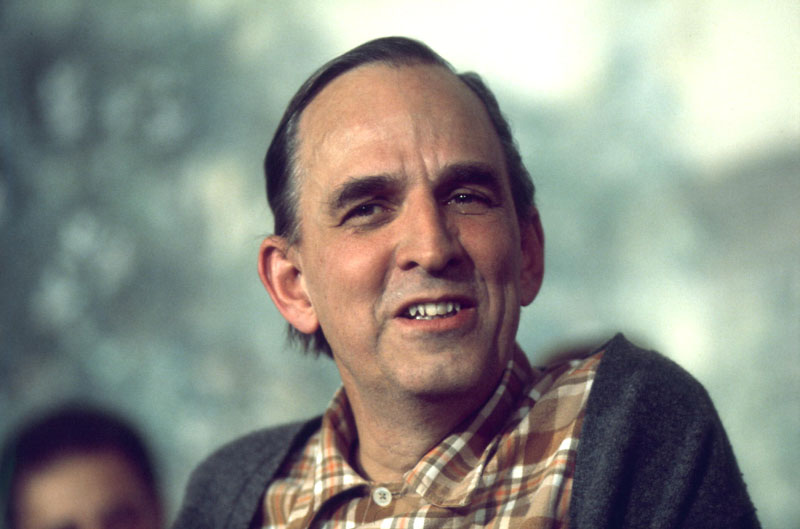
Summer Interlude, The Seventh Seal, Wild Strawberries, The Magician, Through a Glass Darkly, Winter Light, The Silence, Persona, Hour of the Wolf, The Passion of Anna, Cries and Whispers, Scenes from a Marriage, Autumn Sonata, Fanny and Alexander
There is simply no one who wrote like Ingmar Bergman. His films are so many and so varied, that it’s impossible for anyone to go through them and not be changed. He captured the eccentricity, the fluidity, the identity, the absurdity, the cruelty, the contentment, the regrets, the passions, the meaning of life in ways so unpredictable and spellbinding, his claim on the throne of the greatest screenwriter has always felt more imperishable than anyone else’s.
Of course, it’s hard to pick out one film from his list of cinematic masterworks and label it as justification of his enduring acclaim. “Cries and Whispers” shows his ability to contain such desperate sadness in mere looks and gestures of the actors, while the authority with which he built “Persona” is palpable in very exquisite frame of the film.
But then again, it is possible that if “Fanny and Alexander” is the only Bergman one ever saw, one would be in total awareness of his sagacity. Revolving around a pair of brother and sister who are part of a huge family in the Sweden of the 1900s, the film is the most ambitious, the most extensively mounted thing Bergman ever made, and its screenplay is a museum-worthy magnum opus.
Author Bio: Anmol Titoria is a student at University and has been writing and engaging in many a parley about film since he was in school, where he was responsible for writing the film column of the monthly newsletter. He professes his love for Kubrick, Bergman and Tarkovsky in ways so multifarious and with such alarming regularity that his family has considered throwing him out repeatedly.